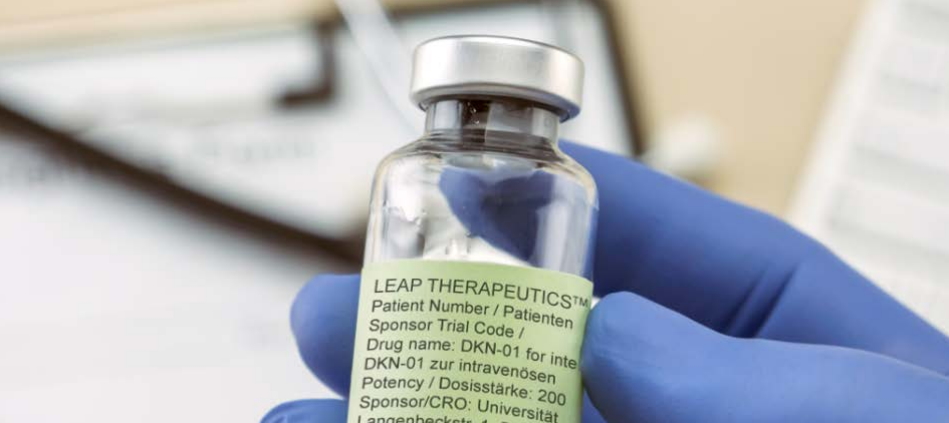FDA fast-tracks Leap’s gastric cancer immunotherapy

Leap Therapeutics will get a swift FDA review for its lead drug DKN-01 for a form of gastric and gastroesophageal junction (G/GEJ) cancer after being awarded fast-track status by the regulator.
DKN-01 is an antibody drug targeting the Dickkopf-1 (DKK1) protein, which is overexpressed in some forms of G/GEJ adenocarcinoma and is thought to be involved in tumour growth as well as dampening down the immune response against the cancer.
In animal models, neutralising DKK1 has been shown to activate an innate immune response against malignant cells.
Earlier this week, Massachusetts-based Leap announced the start of a phase 2a trial of the drug in combination with BeiGene’s PD-1 inhibitor tislelizumab – with or without chemo – in DKK1-positive G/GEJ cancer.
The FDA now says it will fast track review of DKN-01 as a second-line therapy for DKK-positive G/GEJ cancers after prior fluoropyrimidine- and platinum- containing chemotherapy as well as anti-HER2 drugs if those have been deemed appropriate.
Fast track status is reserved for new drugs and vaccines that aim to treat or prevent serious conditions, for which there are few or no current therapies, and is designed to get them to patients earlier.
The FDA’s decision tops off a busy few months for Leap, which also completed a $51 million public offering in June to fund its rapidly-expanding clinical programme for DKN-01, as well as the partnership with BeiGene which brought in $8 million upfront at the start of the year.
The combination study with tislelizumab is one of three mid-stage trials on the go for DKN-01, which is also being evaluated in phase 1 trials for gynaecological, hepatobiliary, and prostate cancers, according to Leap.
Leap is running a trial of the drug in combination with paclitaxel in endometrial and ovarian cancer, while Massachusetts General Hospital is sponsoring a study of the drug alongside Bristol-Myers Squibb’s PD-1 inhibitor Opdivo (nivolumab) in biliary tract cancer.
DKK1 is involved in Wnt signalling, an important pathway in cell proliferation and differentiation, that has been linked to numerous cancer types when it goes awry.
The Wnt pathway has however been considered all-but “undruggable” for years, although latterly a handful of biotechs like Leap, Redx, FogPharma and Verastem have started testing drugs that interact with one or more components of the highly-complex pathway.
Stomach cancer remains one of the most common and deadly cancers worldwide, killing more than 780,000 people in 2018 with only around a third of patients surviving five years from diagnosis.













